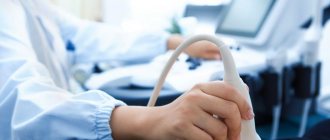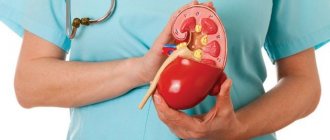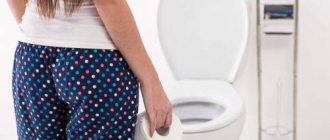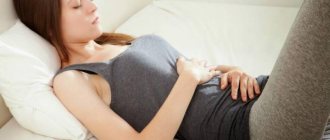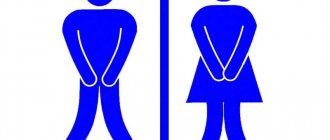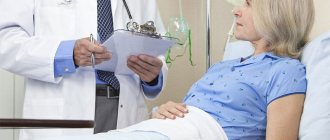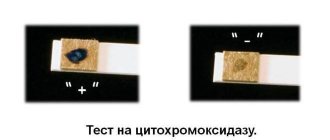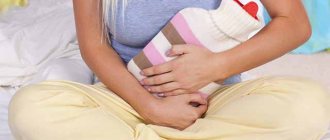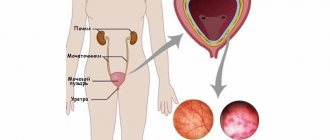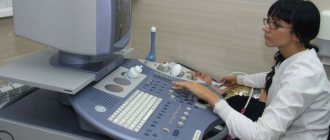Main causes
The normal frequency of urination ranges from 6 to 10 times a day, at night no more than 2 times are permissible. In addition to frequency, it is necessary to take into account the degree of discomfort, the ability to control the onset of urination and feel satisfaction after emptying the bladder.
The most common development factors are:
- physiological reasons;
- medications that affect the amount of fluid in the body;
- inflammatory processes of the urinary system;
- diseases of internal organs (female genitalia, endocrine pathology).
Depending on the reasons that cause frequent urination in women, treatment with tablets is prescribed by a doctor after an appropriate examination.
Surgical treatment
In this case, the goal of surgical treatment is to completely cure frequent urination or eliminate the cause that contributes to urinary incontinence. In practice, the effectiveness of surgical treatment is 70-95%.
Indications for surgery include:
- disease progression;
- urinary incontinence acquired due to stress;
- ineffective treatment of involuntary urination with drugs.
Surgical treatment of frequent urination is an intervention in the normal functioning of a woman’s body. Therefore, the attending physician must warn the patient about possible complications and relapses of the disease.
Therapeutic tactics for physiological changes in urinary frequency
In physiological processes, frequent urination is associated with adaptation and mechanisms aimed at compensating for changes in the internal or external environment of the body.
The most significant include:
- pregnancy;
- consumption of certain drinks and foods;
- reaction to stress;
- general hypothermia.
During pregnancy, the growing uterus mechanically puts pressure on the bladder. Also, in the second half of the period of bearing a child, the amount of fluid in a woman’s body increases. This determines the peculiarities of urination in pregnant women: often, in small portions. If changes cause discomfort, especially at night, it is advisable not to drink liquid 3-4 hours before bedtime. You also need to rest during the day, go to the toilet every time you feel the urge, and completely empty your bladder.
Excessive consumption of liquids, coffee, alcoholic beverages, diuretic foods (watermelon, cranberries, cucumbers) cause not only an increase in the frequency of urination, but also large portions of rich yellow urine. In most cases, these changes are not accompanied by discomfort. Diuretic herbs, herbal remedies and herbal teas containing chamomile, mint, calendula, kidney tea, and a number of other plants have the same effect.
With nervousness, stress, a feeling of anxiety, and fear, frequent urination occurs, in which there is often no feeling of satisfaction after the act of urination. Small portions of urine and frequent urge are also characteristic.
When hypothermia occurs, a temporary compensatory increase in urination occurs.
In all these cases, drug treatment affecting the bladder wall is not required at all. Correction of urination frequency is determined by the nature of the cause. Depending on the specific situation, it is enough to change the diet, normalize the activity of the nervous system, and restore thermal balance.
Drug therapy for diseases of the urinary system with urinary disorders
Diseases of the kidneys and urinary system, which are accompanied by increased urination, are usually inflammatory in nature.
The most common reasons:
- pyelonephritis;
- cystitis;
- urethritis;
- urolithiasis with the presence of a calculus in the bladder.
Inflammatory diseases of the urinary system in most cases are caused by infectious factors, and frequent urination is part of the clinical picture of damage to the wall of the urinary tract by a pathological process.
Treatment should be aimed at destroying the pathogenic agent and restoring the affected tissue. In this case, the doctor must prescribe antibacterial agents (antibiotics, uroseptics), antispasmodic and anti-inflammatory drugs.
The most commonly used antibacterial agents are:
- protected penicillins (amoxicillin with clavulonic acid);
- fluoroquinolones (ciprofloxacin);
- cephalosporins (cefuroxime, ceftriaxone);
- nitrofurans (nitroxoline, nevigramon).
The dosage of a particular drug, as well as the timing of administration, is recommended by the doctor after examination and diagnosis.
Drotaverine and spasmalgon have an antispasmodic effect. By causing relaxation of smooth muscles, they reduce irritation and help reduce the frequency of urination in this case.
For infections, you can effectively use herbal remedies containing plants that have antimicrobial, anti-inflammatory and antispasmodic effects, as well as promoting the dissolution and removal of a certain type of salt deposits (centaury, rose hips, lovage, rosemary, marshmallow, birch, horsetail).
The most widely used in urological practice are canephron, phytolysin, and cystone.
For the treatment of chronic inflammation of the bladder (cystitis), it is advisable to additionally prescribe a medicine that has an immunomodulatory effect (Uro-Vaxom).
Tactics for urinary disorders not related to the urinary system
Impaired urination may be associated with the use of medications, and may also be the result of diseases of the endocrine, cardiovascular system, or gynecological pathology.
Endocrine pathology, most often accompanied by increased urination:
- decompensated diabetes mellitus;
- diabetes insipidus;
- pheochromacytoma.
In this case, a detailed examination and treatment under the supervision of an endocrinologist is necessary. Specially selected medications for these diseases affect the main process. As a result, urinary function is also normalized.
In diseases of the cardiovascular system, increased urine output occurs as a result of stagnant processes, especially at night. Also, for these diseases, a number of medications are used that increase urination - diuretics. They are prescribed according to indications when it is necessary to reduce the volume of circulating blood and reduce the amount of fluid in the body (heart and kidney pathology).
Prevention
To eliminate problems with urination, follow simple rules:
- carry out evening and morning intimate hygiene procedures;
- sexual intimacy must be protected from infections, for which it is necessary to use contraceptives and maintain contact with one regular partner;
- a healthy, balanced diet strengthens the human immune system and allows you to successfully fight infections;
- It is recommended to visit a doctor annually for a complete examination;
- immediately and fully carry out treatment of identified pathologies;
- It is not recommended to sleep at low temperatures (cold provokes active urination).
Compliance with these preventive conditions will help to avoid the growth of problems and cure the disease before severe pathologies occur, which will have a positive effect on the patient’s general condition and his mood.
Drug correction of urinary incontinence
Urinary incontinence is caused not only by frequent urination and urination, but also by the inability to control the onset of urination, resulting in involuntary release of urine. According to statistics, after 40 years, about half of women experience these symptoms to one degree or another.
Causes of urinary incontinence in women:
- weakness of the bladder wall;
- weakening of the sphincters of the bladder and urethra;
- deterioration in the supporting function of the muscles and ligaments of the pelvis as a result of pregnancy, childbirth, age-related changes, and surgical interventions.
For frequent urination due to urinary incontinence, which occurs when coughing, walking and physical activity, medications are used that enhance the work of muscles and sphincters.
The alpha adrenergic agonist Milodrin increases the tone of the sympathetic nervous system. As a result, the urethra works more efficiently due to the strengthening of the sphincter. Among the side effects of the drug, increased blood pressure should be highlighted.
Drugs that inhibit the reuptake of norepinephrine and serotonin (for example, Duloxetine), thereby increasing the levels of these substances in the brain structures (spinal cord), also affect the frequency of urination. Nerve cells are activated, the tone of the urethral sphincter increases while the muscle wall of the bladder relaxes. The drug has a withdrawal syndrome (increased symptoms when you stop taking it) and a number of side effects (insomnia, drowsiness, dizziness).
Frequent, sudden urges to urinate against the background of the inability to control them arise, as a rule, with an increase in the tone of the bladder wall and its excessive contractility (hyperreactivity). For drug correction of this pathology, doctors most often prescribe drugs that have anticholinergic properties. They inhibit the activity of cholinergic receptors, as a result of which the excitability of the sphincter apparatus decreases, involuntary contractions of the muscle wall stop, and the volume of urine increases, which is able to hold the bladder without emptying.
The most commonly used:
- driptan (oxybutynin chloride);
- detrusitol (tolterodine);
- spasmex (trospium chloride);
- Toviaz (fesoterodine).
All anticholinergics can cause a feeling of dry mouth, nausea, constipation, drowsiness, and dizziness in some patients. They have a number of contraindications (angle-closure glaucoma, intestinal diseases). They are prescribed for a long time, strictly under medical supervision.
Mirabegron has a fundamentally different effect. It is an antispasmodic that activates a number of adrenergic receptors. As a result, the bladder wall relaxes and its reservoir function improves.
All the drugs described are used for a long time; the course of treatment can be up to 3 months. Constant self-monitoring is important, and if there are changes in your health or symptoms that were previously absent, you should urgently consult your doctor.
Thus, approaches to treating frequent urination with medications are based on determining the cause of the disorder. After a comprehensive examination and diagnosis, medications must be taken as prescribed by a doctor and under his supervision. This contributes to effective treatment, preventing the progression of pathology, improving well-being and improving the quality of life.
2pochki.com
Why does the amount of urination increase in men?
The genitourinary system of the stronger half of humanity is distinguished by a rather complex organization, and its peculiarity is the close interconnection of all organs. Even if one of them is slightly damaged, the disruption of its functionality affects the operation of the entire system. Tablets for frequent urination in men help restore not only health and self-confidence, but also normal sleep, get rid of irritability and anxiety.
A change in the frequency of urination cannot be called a separate disease; it is rather a symptom of some illness that requires prompt and comprehensive treatment. This condition can be treated using tablet drugs using a conservative method, and such therapy is carried out only after a detailed laboratory and instrumental examination. The choice of the most effective product, produced in tablet form, is based on its results.
There are several reasons why men visit the toilet more than 5-6 times a day:
- urinary tract infection (urethritis);
- inflammation of the prostate gland;
- BPH;
- malignant neoplasms;
- STDs (sexually transmitted diseases);
- hyperglycemia;
- overactive bladder, rapid filling and incomplete emptying.
Having determined the reason for the change in the number of urinations per day, the doctor is able to choose the most effective drug for conservative treatment. For frequent urination in men, treatment with tablets is carried out strictly as prescribed by the doctor, and all therapeutic measures are aimed at eliminating the cause of the development of the pathology.
other methods
You can get rid of frequent urination not only with home remedies, but also by following a certain diet. The easiest way is to stop eating foods that cause excessive urination and irritate the lining of the bladder, creating conditions for increased urge to go to the toilet. These include:
- chocolate;
- caffeine;
- fresh tomatoes and dishes based on them;
- beef and pork;
- fermented foods.
Products that normalize the process of urine formation in the body include:
Features of therapy
Unlike frequent urination in women, this pathology in the stronger sex can occur without pain. And this is a consequence not only of age-related changes, but also of an unhealthy lifestyle, in which men move little due to the characteristics of their professional activities, and abuse alcohol-containing drinks. In this case, ailments associated with congestion in the pelvis develop, and they need to be treated with the help of special medications that activate the blood circulation process.
A diagnosed prostate adenoma or a detected malignant tumor requires a different approach and other therapeutic measures.
If, with frequent urination in women, patients require the help of a gynecologist or urologist, then men need treatment for a disease that causes a violation of the frequency of urination from a specialist who can provide full-fledged effective assistance and prescribe adequate treatment:
- in case of hyperglycemia, you must consult an endocrinologist;
- Prostate diseases are treated by a urologist and andrologist;
- impaired renal function that causes frequent urge to urinate is treated by a nephrologist;
- inflammation of the bladder and urethra - urologist.
If frequent urination in women can be caused by a physiological process (the development of pregnancy and the pressure of the growing uterus on the bladder), then the cause of the frequent urge to urinate in men is some disease.
The peculiarity of therapy is that in most cases, patients are prescribed medications that have a complex effect. However, with a diagnosed inflammatory process in the prostate gland, urethra or bladder cavity, it is impossible to do without prescribing antibacterial drugs.
Prostate adenoma can be treated only after the exact size of the tumor has been determined. The patient is prescribed drugs that have a relaxing effect on the muscles of the urethra.
Therapy for stress as a reason for going to the toilet
The psyche of women is more stable than that of men. Prolonged stress, stress, depression are things that rarely drag women into a state of illness. Stress has become a problem of the 21st century, therefore it affects the health and psyche of women and men.
Women's stress primarily affects the genitourinary system. Menstrual irregularities and decreased sexual desire are accompanied by frequent urination and sometimes urinary incontinence. To normalize, there is no point in taking antibacterial agents - they will not improve the woman’s emotional state, and vaginal candidiasis will be added to the “bouquet” of diseases.
For frequent urination in women of stress etiology, treatment is carried out with a psychologist. The doctor will help identify the cause of stress, after which nervous tension will be eliminated.
Psychotherapy will become the main treatment for frequent trips to the toilet. In addition to the sessions, the doctor will prescribe antidepressants or tranquilizers that will help you relax and relieve nervous tension.
Restoring hormonal levels and psychological stability is already half the success in treating frequent urination.
To consolidate the effect of treatment, they continue with special physical training, which is aimed at strengthening the pelvic floor muscles.
During the procedures, the doctor will ask you to limit your salt and liquid intake, this will help improve the activity of the vaginal and sphincter muscles.
It is useful to stay at a resort, where doctors will teach patients, when stress approaches, to relieve depression not with pills, but with relaxation methods. With successful treatment, the woman will forever forget what irregular trips to the toilet are like.
Penicillins
The penicillin group of antibacterial agents has still not lost their relevance. The drugs are active against gram-positive flora and some gram-negative bacteria.
The effect of using drugs is associated with the property of disrupting the synthesis of the cell membrane of a pathogenic microorganism, which is why it soon dies.
Prescribed for patients with frequent urination. The drugs kill pathogenic microflora and normalize trips to the toilet. Such drugs include Amoxicillin, Ampicillin, Penicillin and others.
Amoxicillin is an antibiotic active against cocci. Has bactericidal properties.
The drug is absorbed by the body - beneficial effect - 93%. An hour after entering the body, the drug reaches its maximum.
The medicine is excreted unchanged by the kidneys. The drug destroys bacteria and prevents them from multiplying.
Available in tablet form, capsules and powder for the preparation of injection solution. Occasionally allergic reactions to the medicine. Does not apply during lactation.
Fluoroquinolones
Drugs in this group of drugs are no less active against pathogenic microbiota inhabiting the urethra and bladder.
Four generations of these medications have already been released. The effect of fluoroquinolones is to damage the DNA of the pathogenic organism, resulting in death.
The drugs fight gram-positive microflora, which predominantly inhabits the mucous membrane of the urethra and bladder and provokes painful symptoms - pain and frequent urination. Effective representatives are Ciprofloxacin and Moxifloxacin.
Ciprofloxacin is a drug that inhibits the ability of bacteria to grow and reproduce. Affects gram-positive and gram-negative microorganisms.
Available in tablets and injection solutions. Take pills to restore normal frequency of urination for at least ten days.
The drug is taken with plenty of water; it is recommended to increase the daily volume of fluid to remove breakdown products.
Apply 1-2 times a day, depending on the severity of the disease. Since the drug has a negative effect on the kidneys, the drug is taken only with the permission of a doctor.
Cephalosporins
Drugs with an antibacterial effect that allow you to get rid of diseases that cause frequent urination in a short time.
There are four generations of drugs that differ in the breadth of their action on pathogenic bacteria.
The mode of action of cephalosporins resembles the work of the penicillin group of drugs. They disrupt the structure of the pathogenic microorganism's shell, but act more effectively than penicillins. They fight diseases with Ceftriaxone and Cefuroxime.
If the desire to urinate frequently is caused by severe infectious pathologies of the urinary tract, then such women are hospitalized in a clinic, and treatment of the pathology continues there.
Among the drugs, doctors often choose Ceftriaxone, a representative of the third generation of cephalosporins.
Available in the form of injection solutions. "Ceftriaxone" is capable of destroying the cell wall of a pathogenic microorganism, due to which the pathogenic bacteria die. Therapy is carried out exclusively in a hospital, monitoring the patient’s blood counts.
Nitrofurans
These are medicinal substances that help to carefully get rid of infections in the urinary organs.
They are less active in relation to severe infectious processes, therefore they are used to treat uncomplicated diseases or pathologies in the initial period of development, when the symptoms are not severe. The nitrofuran group of products is represented by “Nevigramon”, “Nitroxoline”.
"Nevigramon" is a drug containing nalidixic acid. Capable of influencing the DNA of pathogenic microorganisms, destroying and leading to death.
Effective drugs
The method and course of treatment for frequent urination in men is chosen by the doctor who will treat the patient. Which specialist the patient will be referred to depends on the characteristics of the disease.
The choice of medications depends on the decision of the attending physician:
- If urination becomes more frequent due to emotional imbalance in a stressful situation, then therapy is carried out with the help of antidepressants. They can have a relaxing effect on smooth muscles, helping to increase the volume of the bladder and reducing the frequency of the urge to empty it. This could be Duloxetine or Imipramine.
- In case of inflammation, it is necessary to take medications that eliminate the pathological process. Oxybutynin, Driptan, Spazmex are famous for their high efficiency.
- Age-related changes in the walls and muscles of the bladder are easier to tolerate thanks to the prescription and use of hormonal medications such as Desmopressin.
- One of the most common causes of frequent urination in men is the presence of stones and sand in the bladder. Detrol or Tolterodine will help deal with crystals, facilitate their removal and empty the bladder cavity.
After making a diagnosis and conducting an examination, the specialist will prescribe uroantiseptic and antibacterial agents, the use of which in the correct dosage will speed up and facilitate the removal of pathogenic bacteria from the patient’s body.
It must be remembered that even the strongest antibiotics are useless if there is an illness in the body caused by simple viruses. In each individual case, the quality and quantity of prescribed drugs is chosen only by the attending physician.
pochki2.ru
Indications for drug therapy
The human urinary system performs important functions of purifying the blood and removing harmful products along with excess fluid from the body. If a malfunction of the kidneys occurs or there is a mechanical obstruction to the outflow of urine, unfavorable conditions are created for the functioning of the urinary organs. Depending on the course of the pathology, changes in the nature of diuresis are often accompanied by symptoms of frequent urination, while the volume of fluid released may remain within normal limits, increase or decrease.
Patients with complaints of frequent urination often consult a doctor due to discomfort associated with frequent visits to the toilet. An increase in the number of urges to go to the toilet during the day interferes with normal work, interferes with sleep at night and tires you, therefore makes you suspect a problem in the functioning of the body. The addition of additional disturbing symptoms helps to establish an accurate diagnosis and the presence of indications for drug therapy. The problem occurs equally in adult men and women, and in old age the disorder becomes more pronounced and takes the form of incontinence.
Diseases that cause frequent diuresis can affect the organs of not only the urinary, but also the cardiovascular, endocrine, reproductive, and digestive systems. Establishing the causes and determining the indications for the use of medications is carried out by a doctor based on diagnostic data, on which the choice of pharmacological group of the drug depends. Self-treatment will not bring the desired result, since the effectiveness of solving the problem directly depends on the impact on the source of the unpleasant symptom.
The most common indications for prescribing drugs:
- Inflammatory diseases of the urinary system. Inflammation of the bladder walls in women and men occurs with symptoms of frequent urination. The presence of a bacterial, viral or fungal infection leads to cystitis, in which the mucous membrane is affected, and the receptors are constantly irritated. The bladder becomes unable to hold large volumes of urine and the symptom of frequent urination occurs. Since the urethra is involved in the pathological process, there are additionally signs of pain, itching and burning during diuresis. Any urinary tract infection can cause frequent diuresis, therefore, with urethritis and pyelonephritis, the symptom accompanies the course of the underlying pathology.
- Chronic diseases of the genitourinary area. In men, increased diuresis is the first sign of chronic prostatitis, with a change in the frequency of urges, as well as a predominance of the night phase of urine excretion. In women, the cause is often inflammatory processes in the uterus, which, due to swelling, begins to put pressure on the bladder.
- Tumors. Adenoma and prostate cancer in men are accompanied by hyperplastic growths of tissue, which has a physical effect on nearby organs. Compression of the urethra leads to a disruption of the outflow of urine; in the later stages, the bladder is constantly full, and there is a frequent urge to go to the toilet, most often unproductive. It becomes painful to urinate, so the person’s general condition suffers. In women, pelvic tumors have a similar effect on urination.
The list of indications for prescribing drugs for frequent diuresis also includes mineral imbalance, overactive bladder syndrome, urolithiasis, kidney dysfunction, hormonal disorders, age-related changes, infections, injuries, neurotic disorders, arterial hypertension, and manifestations of diabetes. Each type of disorder is accompanied by accompanying characteristic symptoms, among which frequent urination is one of the most disturbing factors for a person.
In some cases, frequent diuresis is a normal physiological reaction of the body. Frequent urination can be triggered by foods that have a diuretic effect, pregnancy, hypothermia, stress, and taking diuretics. Drug therapy to correct the temporary disorder and taking pills in these cases is not required.
Contraindications
Only a doctor can determine contraindications to taking pills, since drugs from different pharmacological groups have different mechanisms and principles of action. By reducing the frequency of urination, there is a high risk of provoking a reverse disorder caused by fluid retention in the body. Drugs that have a depressing effect on urination are contraindicated in most cases:
- In childhood.
- During pregnancy and during breastfeeding.
- If there are signs of edema syndrome.
- For acute renal and liver failure.
- With increased convulsive readiness.
The presence of severe cardiovascular pathology, signs of intoxication, as well as individual intolerance to the components of the drug are included in the list of contraindications for drug correction of frequent urination.
Excessive urination in women and men: causes
Polyuria is the name of a disease that is characterized by frequent and copious urination. Some people are inclined to believe that excessive urination is an individual symptom of the body. In practice, this turns out not to be the case.
Frequent and excessive urination can occur in both women and men.
And quite often, the roots of this condition are the same. As mentioned above, when drinking enough water, frequent and heavy urges are observed. Alcohol and caffeinated drinks can cause increased frequency. According to doctors, this condition can be temporary or permanent. The first case is characterized by tachycardia, and the second case may indicate pathology of the endocrine glands and disorders of the kidneys.
Here is a list of some diseases that are characterized by frequent and copious urination:
- Polycystic kidney disease;
- Hydronephrosis;
- Chronic renal failure;
- Barter syndrome;
- Multiple myeloma and sarcoidosis - in this case, the amount of calcium increases in addition to abundant urine production;
- Strong nervous excitement;
- Mental illnesses;
- Diabetes.
Your doctor will help you find out the specific cause.
Types of drugs
Drug correction of diuresis is carried out in accordance with the diagnostic data. Establishing the nature of the pathology that caused the failure determines medical tactics and the choice of a group of effective drugs for treatment. Provided the correct diagnosis is made, therapy gives a good and quick result, and for a long-term effect, medications must be taken according to the schedule throughout the entire course. In the event that the frequent nature of urination is not associated with the functioning of the organs of the urinary system, the underlying pathology is treated:
- Taking hormonal drugs is the main method of treatment for endocrine diseases.
- Neurological disorders of diuresis are corrected by prescribing antidepressants and sedative tablets.
- Oncological diseases require complex treatment using cytostatics.
Symptomatic treatment of frequent diuresis is rarely carried out. The most effective is to eliminate the cause of the failure, after which the functional activity of the urinary system is normalized or a significant reduction in the severity of the symptom is achieved.
Antibiotics
Inflammatory diseases are treated using antibacterial agents, while the injection route is rarely used; tablets are more often prescribed. By influencing the cause, it is possible to eliminate the consequences of irritation of the mucous membrane and restore normal activity of the bladder and kidneys. A urine culture is first performed for sensitivity, which narrows the choice to 1-3 medications.
For diseases of the urinary system, antibiotics from the group of cephalosporins, fluoroquinolones, penicillin drugs, and nitrofurans are often used. The need to carry out treatment before establishing the susceptibility of pathogenic microorganisms allows the use of broad-spectrum antibiotics that are active against a large number of bacteria.
You need to take antibiotic tablets according to the schedule, adhering to the recommended dosage and frequency of administration. After a course of antibacterial therapy, restoration of normal microflora is required to correct disorders caused by drugs.
Antispasmodics
Frequent urination is often accompanied by the inability to control the process of urine excretion and the appearance of severe pain, which is associated with disruption of the bladder sphincter or caused by compression of the ureters. Such symptoms often occur in old age, as well as in the presence of tumor processes in the prostate gland in men, as well as complications of gynecological diseases in women.
Drugs with an antispasmodic effect eliminate not only the cause of urination failure, but also help control the activity of the sphincter, reducing its sensitivity and relieving pain. The names of the drugs suitable for treatment in each specific case are determined by the doctor, and the tablets most often used in medical practice are Tamsulosin, Doxazosin, Terazosin.
M-anticholinergics
Drugs in this group are considered effective medications for frequent urination, which help reduce tension in the bladder walls and increase its volume. Due to increased capacity and reduced muscle fiber activity, tablets can reduce the number of urges to go to the toilet, especially at night. The tablets have a mild psychotropic effect and are therefore indicated for neurological disorders and increased nervous excitability. M-anticholinergics Oxybutynin and Spazmex are used quite often, have minimal side effects in recommended doses and quickly help reduce the number of urinations. Desmopressin additionally inhibits the production of a hormone that stimulates the filtration activity of the kidneys.
Vitamin complexes
You can achieve a pronounced effect of the tablets faster if you include vitamin complexes containing microelements in the treatment regimen. Chemical compounds are part of hormones and also regulate the level of osmotic pressure, thereby reducing the frequency of urination. In addition, vitamins help improve the functioning of the immune system and increase resistance to infections, which is important in the treatment of inflammatory diseases.
mpsdoc.com
Indications for treating urination with tablets
Urinary incontinence occurs in humans due to a complete or partial lack of control over the sphincter of the urinary system. The disease can develop due to many factors, but most often the disease appears due to high bladder activity. At the same time, to reduce it, doctors prescribe special medications. The reasons are:
- lack of estrogen in the patient’s body;
- infection;
- uterine descent or anterior vaginal wall;
- being depressed or stressed;
- injury to the pelvic area.
Return to contents
Drugs used
Application of "Driptan"
The medicine contains oxybutin hydrochloride, which helps reduce the tone of the bladder muscles. In addition, it has an antispasmodic effect, saving the patient from pain. Small children and elderly people should not use the drug more than twice a day. The drug should not be taken by persons with angle-closure glaucoma, intestinal atony, myasthenia gravis, or bleeding.
Return to contents
"Spazmex"
The doctor selects the dosage individually for each patient!
Trospium chloride is the main component of the drug, which relaxes the muscles of the bladder. It has ganglion-blocking properties. The product is not recommended for use by persons under 14 years of age. The doctor selects the duration of treatment and dosage individually for each patient, but the maximum duration of treatment is 3 months. Tablets are used before meals, washed down with plenty of water.
Return to contents
"Vesicar"
You can get rid of frequent urge to urinate with the help of Vesicare, which contains solifenacin succinate. The component helps to reduce muscle tone in the urine passageways. The result of the treatment is noticeable after a month of use. Not recommended for use by people under 18 years of age. Pregnant women should be especially careful.
Return to contents
"Betmiga"
Mirabegton is the main component of a remedy used to treat frequent urination in women. The patient is prescribed 50 mg no more than 1 time per day. The medicine is prohibited for use by pregnant women and persons under 18 years of age. After taking Betmiga, a person may experience tachycardia, gastritis, and inflammatory processes in the joints, so it is recommended to use it only under the supervision of a doctor.
Return to contents
"Vitaprost forte"
Take only under medical supervision!
To create the product, a powder is taken, which is made from the prostate tissue of a bull that reaches puberty. Patients take 2 tablets 2 times a day. The duration of treatment depends on how much the disease has progressed and how the patient feels. Some patients may develop an allergy after taking the product, so you should not treat it yourself.
Return to contents
"Detrusitol"
The main component is tolterodine hydrochloride, which has analgesic properties. The drug is used regardless of food intake, 4 mg no more than 1 time per day. "Detrusitol" should not be taken by children and patients with angle-closure glaucoma, urinary retention, fructose intolerance, myasthenia gravis and colitis.
Return to contents
"Pantogam"
The calcium salt of hopantenic acid, which is part of the product, has anticonvulsant properties. Tablets are taken 15 minutes after meals. Not recommended for use by small children under 3 years of age. The duration of the treatment process can last up to 6 months, depending on the person’s condition and the degree of progression of the disease.
Return to contents
"Pantocalcin"
The main component of the product is calcium hopantenate, which has an anticonvulsant effect. Tablets are used a maximum of 3 times a day. The course of treatment lasts from 14 days to 3 months. It is prohibited to use by patients with acute renal failure, as well as by patients in the first trimester of pregnancy. The product may cause allergic reactions.
Return to contents
Application of "Urotol"
Due to spontaneous treatment there may be side effects!
Tolterodine hydrotartrate is the central component of the drug, which reduces bladder tone. The drug is used at a dose of 2 mg no more than 2 times a day. If necessary, use half as much product. As a result of spontaneous treatment, the patient may develop Quincke's edema, headaches, drowsiness, fatigue, tachycardia and bronchitis.
Return to contents
"Imipramine"
With frequent urination, the patient is helped by imipramine, which is the basis of the drug. The course of treatment is selected individually for each person. On average, an adult should take 50 mg tablets about 3-4 times a day. Young patients 6-12 years old use 30 mg 2 times a day. Do not use by pregnant women, patients with heart failure, liver or kidney failure.
Return to contents
Folk remedies for frequent urination
Before you start treating frequent urination with herbs, you should consult your doctor to avoid complications.
Tea helps with frequent urination:
- from mint;
- from a mixture of equal parts of centaury and St. John's wort;
- from corn silk and cherry stalks.
- from birch buds or black poplar buds;
- from dill seeds;
- parsley and carrot tops.
1 tsp. prepared raw materials are poured with 1 glass of boiling water and left for 1.5-2 hours. Take 3 times a day, ½ cup 30 minutes before meals.
Various compresses relieve pain when urinating.
A compress of onion pulp is applied to the lower abdomen. It can be worn for several hours. Apply a horsetail compress for 20 minutes before bedtime.
